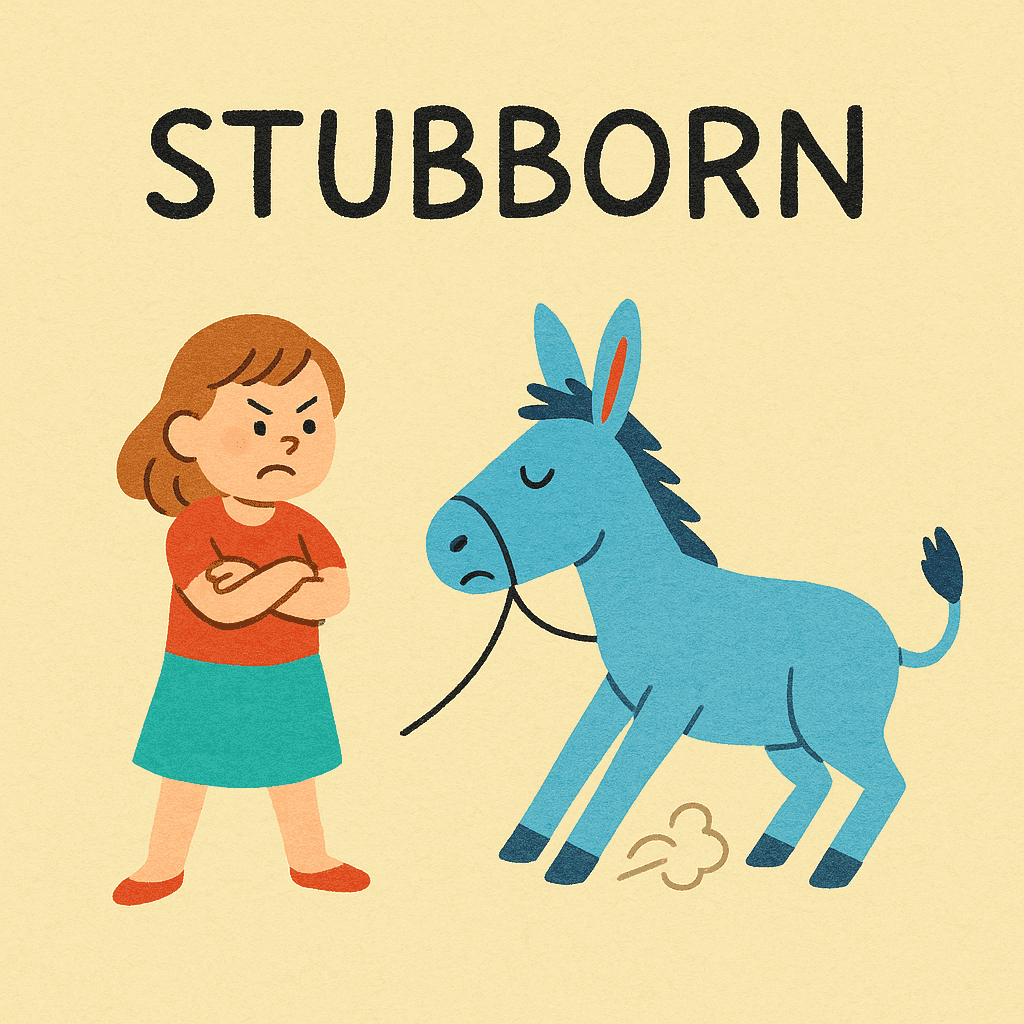Meaning
- Stubborn (adjective) describes a person who is determined not to change their attitude, opinion, or behavior, even when there are good reasons to do so. It can have both negative (unreasonable, difficult to deal with) and positive (persistent, determined) nuances depending on context.
Grammar and Usage
-
Part of speech: Adjective
-
Used to describe people, attitudes, or things that resist change.
-
Sentence structures:
- stubborn + noun (a stubborn child, a stubborn stain)
- be stubborn about sth (He is stubborn about admitting mistakes.)
Common Phrases
- stubborn as a mule
- a stubborn refusal
- a stubborn problem
- stubborn resistance
Collocations
- stubborn attitude
- stubborn behavior
- stubborn resistance
- stubborn stains
- stubborn pride
Examples
- She is too stubborn to admit that she was wrong.
- The child gave a stubborn refusal to go to bed.
- He has a stubborn belief that he is always right.
- The old man remained stubborn about leaving his home.
- A stubborn stain on the shirt wouldn’t come out.
- He showed stubborn resistance to the new policy.
- Sometimes being stubborn helps you succeed.
- The mule was stubborn and refused to move.
- Her stubborn pride stopped her from apologizing.
- The disease is stubborn and hard to cure.
Synonyms or Related
- obstinate
- headstrong
- pigheaded
- unyielding
- persistent (positive sense)
- determined
